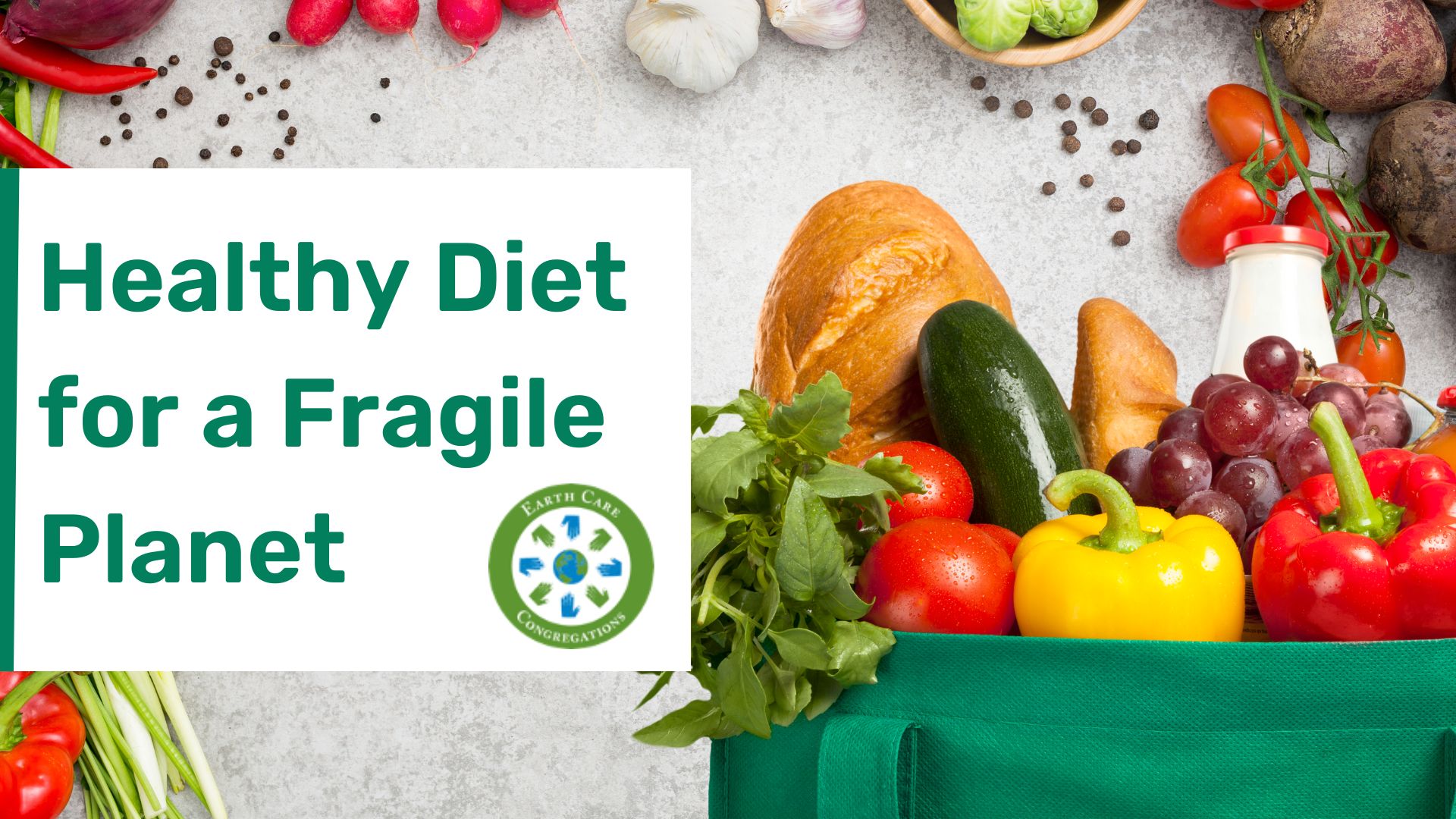
Responding to today’s climate crisis requires ongoing advocacy for state and national legislation to reduce global warming. And it’s a good thing to channel our individual efforts through groups such as the Environmental Defense Fund and Presbyterians for Earth Care.
But even on a personal, “micro” level our everyday habits can help the environment we live in. Examples include reducing food waste by composting and mitigating trash and plastic by recycling.
Another example is in our eating habits. The Unidine Corporation, the dining service provider for the retirement community I live in, recently published an article on reducing our carbon footprint through our diet: “…certain foods produce more carbon and so do certain practices. These include dairy and meat purchasing, food transportation, packaging, production, water usage, and waste.” The website, www.earthday.org/foodprints-calculators, cites these examples:

Best Foods: peas, mushrooms, cruciferous and root vegetables, onions and leeks, beans, apples, citrus fruits, nuts
Decrease: bovine meat and dairy, pork, soybean and palm oil, farmed crustaceans, coffee, dark chocolate, cheese, lamb
As Christians called to love God and our neighbor, we can do a hundred things to help save our fragile planet and its inhabitants. Even choosing the foods we eat will make a difference.
Learn more about Westminster’s commitment to Earth Care
– Paul H. Randall. April 27, 2023





